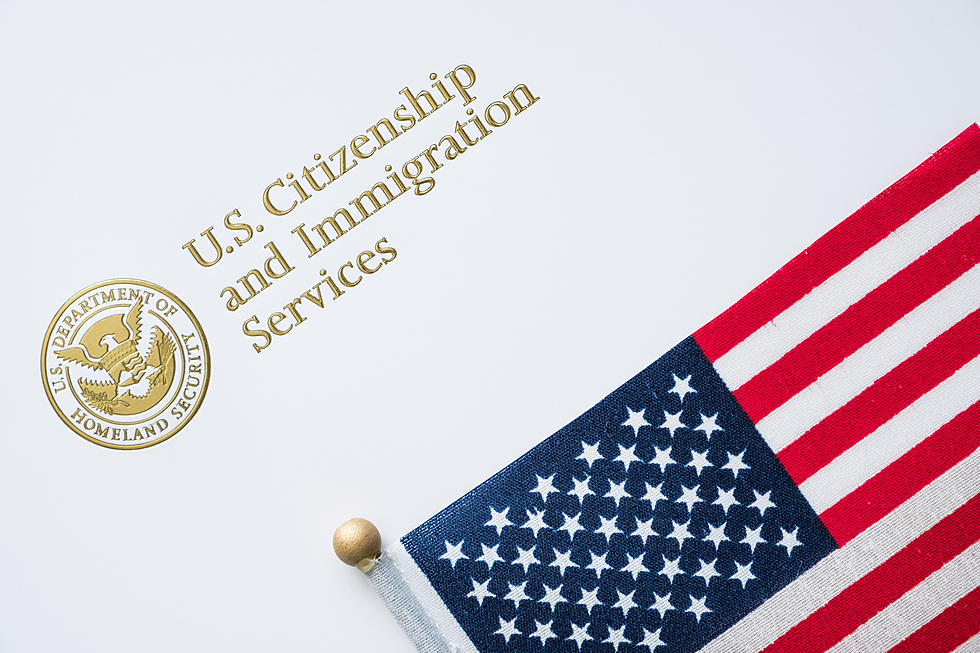
These NJ Communities Say No to Murphy’s ‘Sanctuary State’ Rules
Pushback continues against the state's new rules for dealing with federal immigration authorities, as some communities view the directive as a possible obstacle to deterring crime.
The rules, first outlined by state Attorney General Grubir Grewal in fall 2018, before going into effect in March, are designed to help immigrant communities not fear cooperating with law enforcement. Though Grewal didn't use the term, they make good on one of Murphy's key campaign promises: to make New Jersey a so-called "sanctuary state."
Grewal has said that nothing in the directive limits New Jersey law enforcement agencies from enforcing state law – and nothing in the directive should be read to imply that New Jersey provides “sanctuary” to those who commit crimes in this state. But the guidelines do restrict cooperation between local authorities and federal immigration enforcement in several respects.
The "Immigrant Trust Directive" says all levels of NJ law enforcement:
- Cannot stop, question, arrest, search, or detain any individual based solely on actual or suspected immigration status;
- Cannot ask the immigration status of any individual, unless doing so is necessary to the ongoing investigation of a serious offense and relevant to the offense under investigation;
- Cannot participate in civil immigration enforcement operations conducted by ICE;
- Cannot provide ICE with access to state or local law enforcement resources, including equipment, office space, databases, or property, unless those resources are readily available to the public;
- Cannot allow ICE to interview an individual arrested on a criminal charge unless that person is advised of his or her right to a lawyer.
Among the directive's exceptions and exclusions:
- Nothing stops officers from assisting federal immigration authorities in response to emergency circumstances.
- Officers may participate with federal authorities in joint law enforcement task forces, provided the primary purpose is unrelated to federal civil immigration enforcement.
- Nothing in the directive prevents officers from requesting proof of identity from an individual during the course of an arrest or when legally justified during an investigative stop or detention.
Opposition from local authorities
The Atlantic County Board of Freeholders withdrew a resolution from the July 30 meeting that would have shown support for continuing to collaborate with U.S. Immigration and Customs Enforcement (ICE) agents. An Atlantic County spokeswoman said Monday she was "not aware of any plans to resubmit that resolution."
Still, the following municipalities and at least two counties have gone "on record" as being opposed to discouraging cooperation with federal agents on any issues involving unauthorized immigrants.
- Brick Township (Ocean County)
On Aug. 13, Brick Township council voted 6-0 to adopt a resolution opposing NJ “sanctuary state” status, noting Mayor John Ducey’s commitment since 2017 that the township would not become a “sanctuary city” and supporting Ocean County’s federal lawsuit against Gov. Murphy and Attorney Grewal’s “Immigrant Trust Directive.” The resolution that passed urged the governor and lawmakers to “re-evaluate” the sanctuary policy. It was revised from an earlier version proposed by Councilman Jim Fozman, who became a Republican last August.
- Old Bridge (Middlesex County)
On Aug. 5, the township council voted 7 to 2, approved a resolution authorizing the township's attorney to investigate and take legal action against Gov. Murphy's administration in response to the Immigrant Trust Directive.
- Cape May County
Cape May County Freeholders passed a resolution in late July, to support the County Sheriff’s commitment to continue a partnership with ICE, through the 287 (g) program. It lets local authorities perform the functions of federal agents.
- Parsippany-Troy Hills (Morris County)
The township council approved a resolution at its April 16 meeting, opposing New Jersey acting as a sanctuary "city" or state and resolving that Parsippany "never becomes a sanctuary city." There were contentious moments at the meeting, as Mayor Michael Soriano and some Council members sparred over wording of the resolution, and possible misinterpretations of the statewide Immigrant Trust Directive.
- Sussex County
The Freeholder Board also in April passed a resolution to put a question on the ballot on whether local voters support the state's Immigrant Trust Directive. In a news release, Republican state Sen. Steve Oroho and Assemblymen Parker Space and Hal Wirths slammed "state directives from unelected bureaucrats undermining federal immigration laws."
- Middletown (Monmouth County)
Local officials passed their own resolution against "NJ becoming a Sanctuary State" in April, too. "We can’t sit by and let Trenton compromise the safety of our residents," Mayor Tony Perry said at the meeting, as reported by The Two River Times. He also said “We will never consider becoming a sanctuary city.”
- Freehold Township (Monmouth County)
The Township Committee passed a resolution declaring it opposes New Jersey acting as a sanctuary state for immigrants who are in the country illegally. As reported by CentralJersey.com, the resolution said Freehold Township will not be "designated a sanctuary township and will not budget money for related unfunded state or federal mandates."
- Jackson (Ocean County)
The township's governing body in fall 2018 passed a resolution against New Jersey acting as a sanctuary state even before the state attorney general officially had released the new rules. The resolution said the council “shall continue to put the needs of the residents of Jackson Township first and thereby determining that Jackson Township shall never be a sanctuary city.”
Gov. Phil Murphy first voiced his support for becoming a sanctuary state while campaigning for governor.
Immigration and Customs Enforcement in the spring announced the arrest of more than 100 people in New Jersey. According to the ICE office in Newark, the state's regulations did not affect the agency's ability to take anyone into custody and none were being held by any local agencies.
More From WPG Talk Radio 95.5 FM










